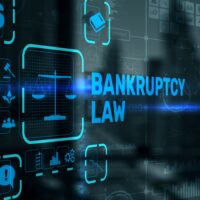Can I Really Keep Property In My Chapter 13 Bankruptcy?

You will often hear that one of the big benefits of a Chapter 13 bankruptcy is that you get to keep property that you would otherwise have to surrender in a Chapter 7 bankruptcy. But how is this possible? Why and how does a debtor get to keep property in a Chapter 13 bankruptcy?
Keep It But Pay For It
Unlike in Chapter 7, in a Chapter 13 bankruptcy, you won’t lose property that is not exempt. However, even though you do get to keep your property, you do have to pay for it.
This is because the value of your property which is not exempt must be paid back to your creditors through the course of your (usually) 5-year Chapter 13 repayment plan.
Plan Calculations
A Chapter 13 income plan requires you pay all of your disposable income towards your debts. Disposable income has a specific definition, and you should see a Chapter 13 bankruptcy attorney to see what your disposable income would be in your situation.
But if you have nonexempt property, and you keep the property, and the value of that property is more than your disposable income over the course of 60 months, you will instead pay the value of the property that you are keeping. This can create problems for some people.
Imagine that you have nonexempt assets that are worth $100,000. Over 5 years or 60 months, this is $1,666 per month in payments. Add that to other things that are included in a Chapter 13 payment, like payments to secured creditors, or payments on debts that are not dischargeable, and you could end up with a Chapter 13 plan that has a payment that you simply cannot afford.
Court Approval
Ultimately, the court must approve your Chapter 13 repayment plan. This is why in Chapter 13, it is almost better to make more money, rather than less. By earning more money, you can show the court you can afford the plan payments, which in turn allows you to retain more of your own property.
This is also why exemptions are important in a Chapter 13. Exemptions lower the value of the property you’re keeping, thus lowering your plan payments.
What You Pay
Whether you pay the value of non-exempt assets, or your disposable income, you will only pay up to the amount that you owe, and no more. In some cases, your disposable income for the 60 months of the plan or the value of your nonexempt assets (again, whichever is higher) may be less than what you owe to your unsecured creditors. That’s OK—the rest is discharged at the end of your plan.
So although you will still have to possibly lay the value of the property you keep, you will not lose that property, and you still will get the benefit of paying less than what you owe to most creditors.
Bankruptcy questions? Talk to us for help. Call the West Palm Beach bankruptcy lawyers at Kelley Kaplan & Eller at 561-264-6850 today.
Resource:
floridabar.org/public/consumer/pamphlet008/#Chapter%2013



